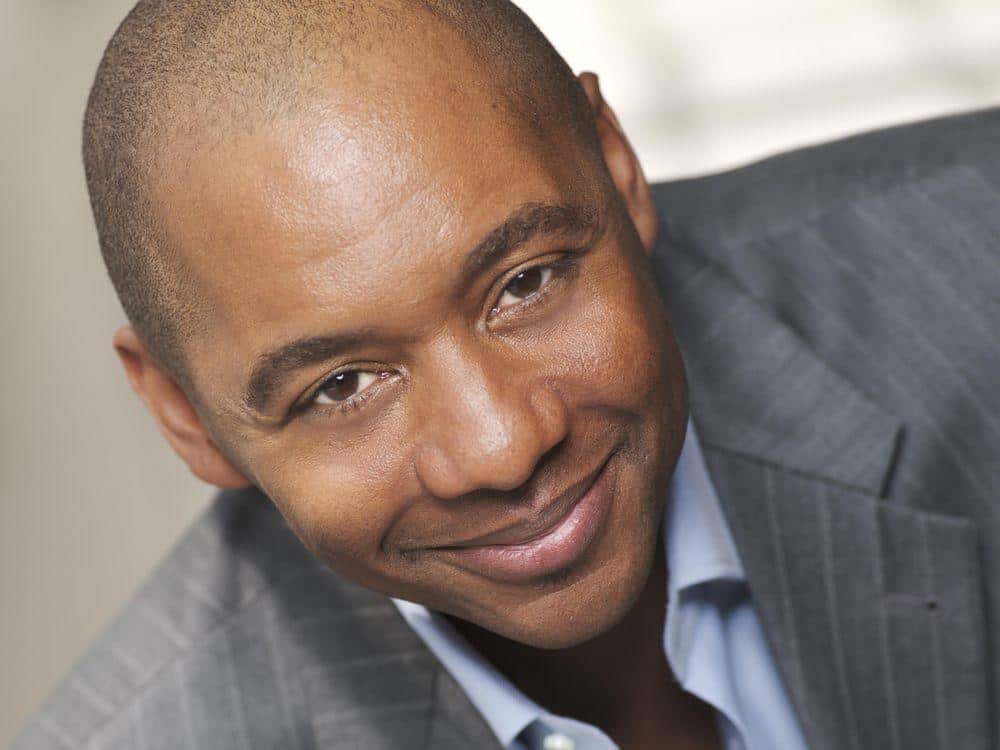Branford Marsalis Quartet
Waltons World Masters Series
1 March 2007
National Concert Hall
'Branford Marsalis continues to push jazz in the directions that this art should seek for eternity.’
– All About Jazz
Did you attend this concert?
We would appreciate your thoughts about it.
Performance
When Thursday, 1 March 2007
Where National Concert Hall, Dublin, Main Auditorium
Presented by Waltons New School of Music
Supported by RTÉ lyric fm, The Irish Times, Brooks Hotel
Branford Marsalis Quartet
Branford Marsalis • Saxophones
Joey Calderazzo • Piano
Eric Revis • Bass
Jeff 'Tain' Watts • Drums
‘A world-class contemporary band at the height of its powers.’
– The Guardian
‘A unit with telepathic intuition and unbridled adventurousness, held together by a singular creative vision.’
– Billboard
Branford Marsalis
Grammy award-winning jazz saxophonist, master performer, composer, producer – Branford Marsalis is truly an uncommon musician, equally at home on the stages of the world's greatest jazz clubs and classical halls. Branford was born into one of New Orleans’ most distinguished musical families and first came to national prominence as a member of Art Blakey’s Jazz Messengers along with his brother Wynton. His 1984 album Scenes in the City began his thriving solo career, which has encompassed three Grammy Awards, fourteen jazz albums and two classical albums under his own name, and several successful forays into the pop world with artists such as the Grateful Dead, Sting and Bruce Hornsby. In addition to performing, Branford has also composed soundtracks for several films and contributed to the Spike Lee films Mo’ Better Blues, Malcolm X and Clockers. He launched his own Marsalis Music label in 2002 as a home for creative musicians.
From the time of his emergence with Michael Brecker in 1986 through his recent work in the Branford Marsalis Quartet, pianist Joey Calderazzo has proved to be among the most intense and engaged of contemporary soloists and accompanists. His energy, technique and rapid fire imagination have marked him as one of the most exciting jazz pianists to emerge in the past two decades.
Grammy Award winning bassist Eric Revis started his professional career playing with Betty Carter and for a number of years has been a member of Branford Marsalis Quartet.
Jeff ‘Tain’ Watts came to fame as drummer with the early Wynton Marsalis band and has been greatly in demand ever since, playing and recording with a veritable Who’s Who of jazz giants, from Sonny Rollins to Michael Brecker and McCoy Tyner to Geri Allen.
Public Interview
When Thursday, 1 March 2007
Where Erin Room, Dublin Castle
Presented by
Waltons New School of Music
in association with NCH Education & Outreach
Supported by Music Network and RTÉ lyric fm
Moderated by Donald Helme (then presenter of Jazz Alley on RTÉ lyric fm), this fascinating ‘public interview’, in which Branford Marsalis spoke about his past experiences and approach to jazz, was recorded for broadcast by RTÉ lyric fm.
Ray Comiskey
The Irish Times, 3 March 2007
It's taken a long time for Branford Marsalis to come here but it's been worth the wait. The saxophonist seems to have reached a level of maturity in his playing, while his working group, with Joey Calderazzo (piano), Eric Revis (bass) and Jeff 'Tain' Watts (drums) has the kind of seamless understanding that usually comes only after a long time together.
They have also kept at bay any tendency to coast. Their work has a freshness and a constant, off-the-cuff feel, epitomised by the opening Trieste, by drummer Paul Motian, which was given a long, rubato introduction on soprano, full of swoops and fluttering phrases, before settling on the theme and, finally, into uptempo for engaging piano and soprano solos.
It was followed by Calderazzo's beautiful ballad 'Hope', taken rubato again and displaying the full beauty of Marsalis's soprano sound. But there is also an acute awareness of dynamics and the value of contrast within the group, with the composer's delicately lyrical solo set off by a passionately climactic soprano solo. The play-it-as-it-lays feel continued as Revis's fine bass solo became a segue into the next piece, Samo, with the leader remaining on soprano.
Marsalis switched to tenor for 'Monk's Dream', displaying a big, old-time saxophone sound, while the quartet showed it could groove, straight-ahead, as well as perform rubato. But it's also true that if rubato playing in jazz is now a modish fashion, this group's use of it was rigorous, the polar opposite of diffuse and loose.
The high level of performance continued with Marsalis on soprano and a gentle, affectionately mocking 'Sir Roderick, the Aloof', named after their tour manager.
They finished with a charge through the changes of 'Sweet Georgia Brown' under the guise of 'Sweet Clifford' and, as an encore, a slow 'Mood Indigo', reinforcing his Coleman Hawkins/Ben Webster tenor lineage as he turned it into a slow rocker....

